- Home
- Maine Coon Care
- Leave a Cat Alone Q & A's
Leaving a Cat Home Alone
For how long, and at what age can you leave a cat alone at home? Whether it's long work days, away trips or an emergency, put a plan in place for those times when you have to leave.
Here, our community discusses leaving cats home alone, whether it's ok and for how long.
Readers share some excellent advice and experiences on how they keep their Coonies safe, happy and entertained when they have to be left home alone!
If you like this, you'll love our fun, free Daily Digest!

If you like this, you'll love our fun, free Daily Digest!

Leaving your cat home alone for a stretch is a situation many pet parents face, whether it's due to work commitments, travel, or just life's unpredictability. So, how long is too long?
Well, it depends on several factors, but with a bit of preparation, most felines can handle some solo time like champs.
First off, adult cats generally fare better than kittens or seniors when left alone.
They're more independent and can manage their own affairs—like napping and prowling the house—for longer stretches.
As a rule of thumb, occasionally leaving an adult cat alone for 24 hours isn't typically an issue, as long as they have access to food, water, and a clean litter box.
While there are no hard and fast rule, we do recommend having someone check in if kitty will be alone longer than 12 hours.
However, there are a few caveats to keep in mind. If your kitty has health issues or special dietary needs, you might need to arrange for someone to check in on them more frequently.
Likewise, some kitties are social butterflies who crave human interaction, while others are perfectly content to spend hours lounging solo.
Knowing your pet's personality can help you gauge how they'll handle extended alone time.
Another consideration is your home environment. Make sure it's safe and secure before you head out the door - remove any potential hazards, secure windows and doors, and double-check that toxic plants or substances are out of reach.
If you're planning to be away for a couple of days or longer, it's a good idea to arrange for a pet sitter or enlist the help of a trusted friend or neighbor to pop in and check on your feline friend.
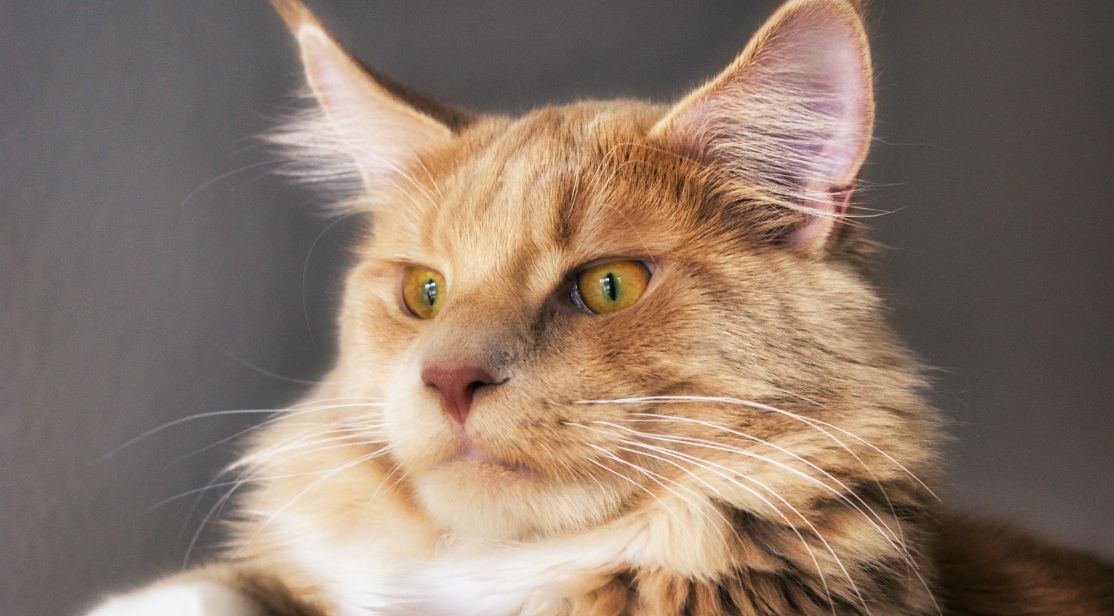
Regular visits can provide companionship, ensure your pet's needs are being met, and give you peace of mind while you're away.
Every animal is different, so use your best judgment and consider your cat's individual needs and temperament when deciding how long to leave a cat alone.
With a little planning and a lot of love, you can leave a cat alone and ensure they stay happy and healthy, no matter how long you're away.
Here are some guidelines and considerations to keep in mind:
- Age and Health: Kittens and senior cats typically require more attention and care than adult cats. Kittens, in particular, may need to be fed more frequently and monitored for any mischief they might get into. Seniors may have special dietary or medical needs that require attention.
- Food and Water: Ensure he or she has access to fresh food and water at all times. Automatic feeders and water dispensers can be helpful for ensuring a steady supply, especially if you're away for extended periods.
- Litter Box: A clean litter box is essential for their health and comfort. Make sure to clean it before you leave and consider providing an extra litter box if you'll be gone for more than a day.
- Safe Environment: Remove any potential hazards or toxic substances from your home environment before leaving. This includes small objects they could ingest, poisonous plants, and access to dangerous areas like balconies or windows without screens.
- Enrichment: Cats need mental and physical stimulation to thrive. Leave out toys, scratching posts, and puzzle feeders to keep him entertained while you're away. Consider rotating toys regularly to prevent boredom.
- Companionship: Some felines may benefit from having a companion while you're gone, whether it's another kitty, a pet sitter who visits regularly or a friend or family member who stays in your home with them. However, not all cats enjoy the company of others, so consider your their individual personality and preferences.
- Regular Check-ins: If you'll be away for an extended period, arrange for someone to check in periodically. This can ensure their well-being and provide peace of mind for you.
- Training: Consider training your cat to be comfortable with your absence by gradually increasing the time you spend away. This can help reduce anxiety and stress when you're not home.
"Is it ok to leave a cat alone two days per week, if given lots of attention the rest of the time?"
This is a tough question. Maine Coons are indeed a bit different from your average cat in terms of their need for companionship.
- If the question refers to leaving a cat home alone for two full days at a time, this is not recommended. She could become ill, injured, panicked or depressed.
- If it means two long workdays away from home, that should be no problem!
This breed does tend to form strong bonds with their humans, so there's a possibility she might feel lonely during those two days. However, without knowing her specific personality, it's hard to say for sure.
Some people find their cats do okay alone for a couple of days occasionally, while others prefer having someone check in on their feline friend.
Additionally, is there a friend or family member who could pop by once during your absence? Even a short visit could make a difference in her day.
Another consideration could be getting another cat for companionship. Maine Coons are social creatures and often enjoy having a feline buddy around.
Ultimately, it's a decision between you and the cat. Some will handle alone time better than others.
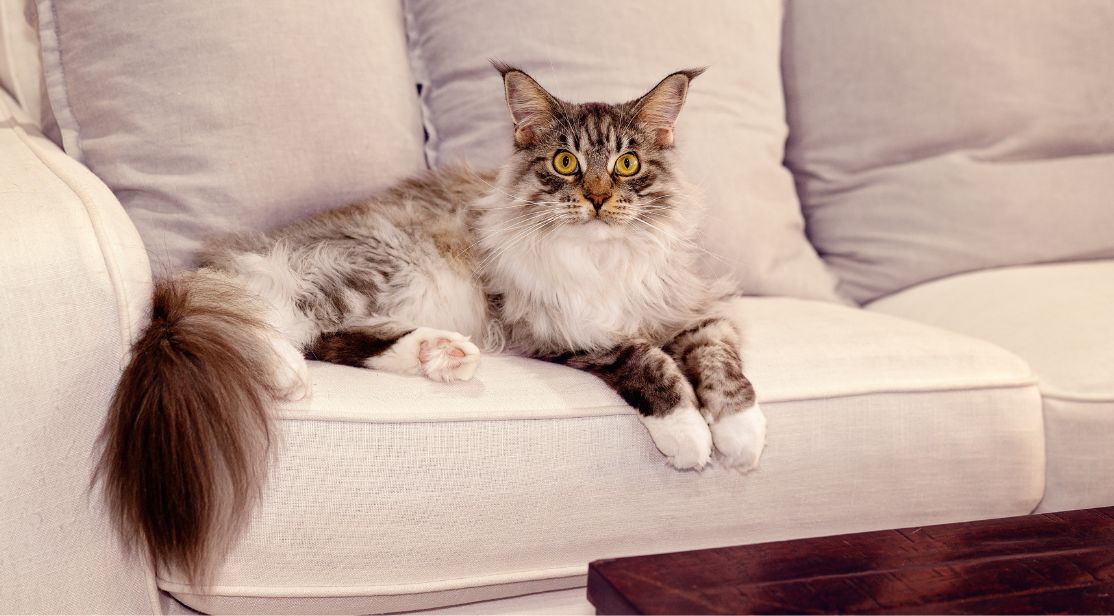
One of our readers, Sharon, adds: "Does 'two days' mean 48 hours alone or just alone during the day?
My rule of thumb used to be 24 hours to leave a cat alone; not any more. A lot can happen in 24 hours, as I found out when my husband and I did an overnight for my 50th birthday.
My then 18 month old Coon came down with some mysterious issue whereby he was extremely dehydrated when we came home, listless and had been throwing up what looked and smelled like stool.
He was rushed to the vet who did radiograph which showed he was totally constipated. Albeit this condition must have started before we left, but went unnoticed.
Several vet visits later he was on the mend, but we nearly lost him. Never found out what happened or why.
I now have three cat sitters and when we are gone one of them comes in twice a day for 1/2 hour to scoop boxes, fill food and water bowls and play with them."
Leave a Cat Alone While Running Errands?
"If I leave a cat alone to go do an errand for two - three hours, how will the cat handle it?
Should I put on a cat video, t.v., radio, toys?"
You certainly can do those things, and if your cat is young, he or she will probably enjoy the entertainment.
But, you don't have to (though it's good to leave toys around). Folks leave their cats home alone regularly with no ill effects. That is one of the differences between owning cats verses owning dogs.
Being gone all day every day takes more consideration. Maine Coons do get lonely.
But running errands, and leaving for a few hours at a time should be of no concern!
If your cat is feisty, young or mischievous, you may want to consider setting up a "safe room" free of hazards for when you have to leave him home alone.
Also, you will want to make sure he/she can't get into any poisonous plants, household chemicals, or chew on wires etc. when you are gone.
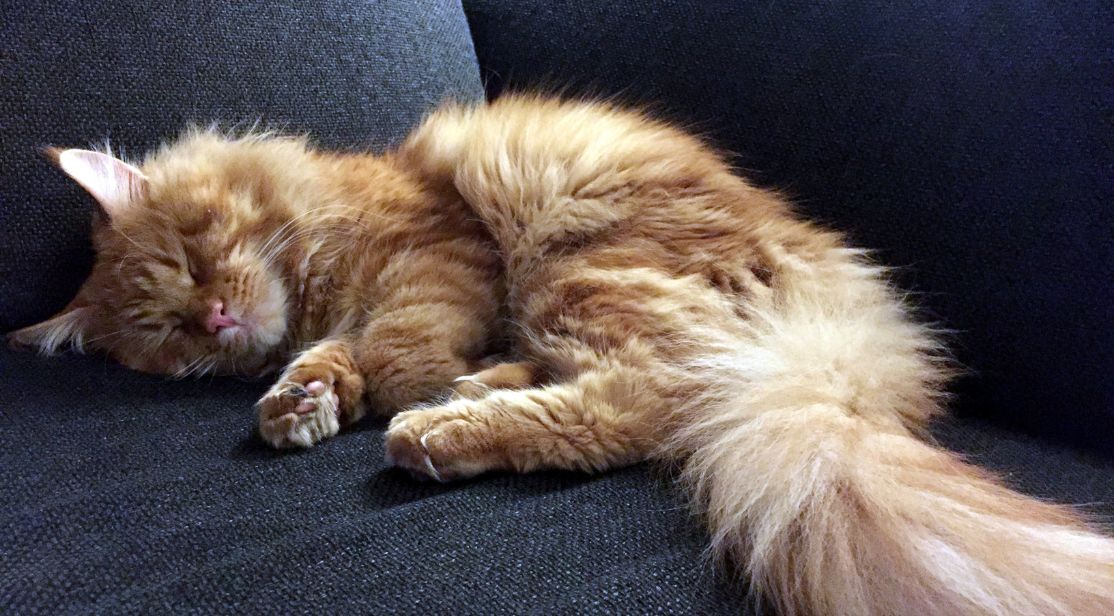
Gail, a reader from Massachusetts, advises: "I'm gone all day, so my Abby is alone about 10 hours. She doesn't seem to mind; however, we both work at filling in the time, such as:
• Animal Planet - she LOVES watching the different shows, especially when they feature the big cats. I've come home sometime and find her glued to the TV.
• Rotate toys - that way, they always seem to be fresh, alleviating the boredom.
• Perches/windows - we've got 3 windows with perches for her to watch/listen to the wildlife outside.
• Scratching posts - a small sisal rope scratching post with a poofy feather thing attached via spring hangs from the door knob.
She goes to town smacking the poofy thing around, then relieves her scratching on the sisel rope.
We also have a huge, sturdy, free-standing sisal scratching post that I covered with catnip to attract her. It's got a heavy base and top, so she can launch herself at it and stick to it without it falling over (available at Amazon.com for around $35USD).
• Small dog house - purchased from Walmart online (goes for about $35USD) - 2 pieces snap together.
She loves to "get away from it all" sometimes and just chills inside it. She also has a few mats scattered about to lay around where ever she pleases.
• QUALITY TIME - this is the most important! When I get home, the 1st thing I do is sweep her up in my arms, give her some love, then put her back down (takes around 10 seconds since she's not a lap cat).
Then, we head into the bedroom, where she'll jump up on the bed, waiting for me to give her "pretty brushes." When finished, she knows the next thing is FOOD! Oh boy...she loves it!
Hope some of these suggestions help you enrich your relationship with your furkid. Good luck!"
"At What Age Can I Leave My Kitten Home Alone For A Few Hours?"
Jennifer asks: "I just adopted a 12 week old kitten that is part Maine Coone.
He is extremely affectionate, friendly, not afraid of anything and requiring constant attention.
I love everything about his personality, and in just 2 days we've become extremely attached.
I won't leave him alone for more than 3 hours at a time because I'm worried he'll get incredibly lonely as he is always by my side purring and follows me around much like a dog would.
I have even resorted to taking him to work with me because he's so little and has a tendency to get into everything.
At what age would it be safe to leave him by himself for a few hours?"
Hi Jennifer,
It's wonderful to hear how quickly you have bonded with your kitten, and how responsible and conscientious you are!
Maine Coon cats are just like that: always by your side, purring and keeping you company.
They would rather be with you than alone, especially when they are young and bursting with energy. Small kittens are a little like babies!
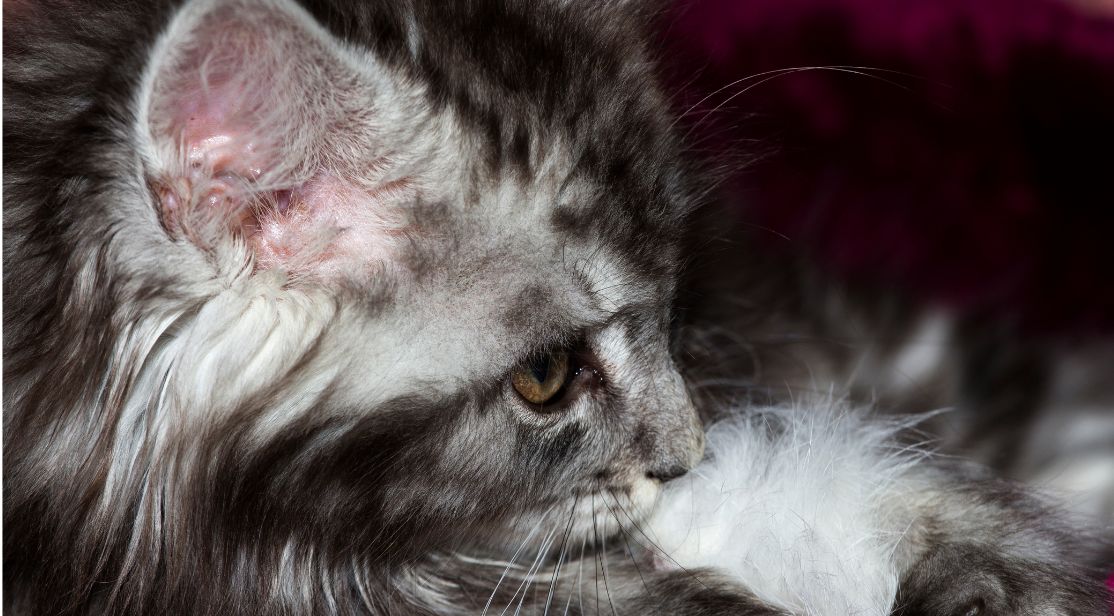
As he ages, he'll nap for a good portion of the day and there won't be as much "togetherness," though he will always prefer to be around you.
You can go ahead and leave your kitten alone for a few hours at a time whenever you'd like. I would recommend creating a "safe room" for him. It can be a bedroom or bathroom that you have designated for him.
That way you will be sure he doesn't have plants or wires to chew, nick-knacks to topple, or other mayhem in the making!
Maine Coons are companions, but they are still cats, and it's totally ok to leave a cat alone. Time to start training him! Caring for Coonies is a responsibility but never a burden :)
How Does an Owner Being Deployed for Months at a Time Affect Cats?
Kathryn asks:
"I am in the service and get deployed for 3 months or more.
If my husband and I adopt a Maine Coon Cat, will he or she be distant or angry with me when I return home?"
Hi Kathryn,
No, your cat won't be mad at you. He or she will probably be very happy when you return, somewhat like the viral videos of dogs who are so happy they squeal when their person returns from service. Though a cat won't be as overt with their happiness, of course!
As long as your husband is on board with the idea, (is he a cat person, too?) and can give your Maine Coon lots of love when you are away, all will be fine.
One thing you can expect is that the cat might bond more strongly with your husband. Maine Coons tend to choose one person to become most attached to. He or she will still love you a lot, too, though!
Cat Won't Eat When Home Alone
"Our Smokey will not eat unless we are home and in the room with him. He will jump up on the table and inspect our dish then get down and eat his own.
Many times to get him to eat we have to put the dish on the counter, pet and talk to him as he eats.
What bothers us is he will not eat if we go away. Even the Vet called us one time because he would not eat and they had to feed him by IV.
We were told that is the breed. We worry because we have a few commitments that will require us to be away for 12 hours or so.
Has anyone had this problem and how did they solve it?"
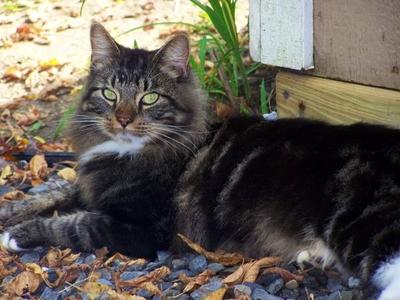
It sounds like Smokey is definitely living the good life!
I find it very interesting that you were told this is a breed trait. I feel that there is just as wide of a range in eating habits among Maines as there is among any group of cats.
Within the Maine Coon breed you'll find picky eaters, cats who will only eat in a certain place or a certain food, or at a certian time of day.
But even more, you'll hear about well-fed cats that don't seem to have an "off" switch. They may pick all day, or simply eat too much.
It sounds like what began as you going out of your way to "get him" to eat, has become Smokey's ritual. Something he expects, and is even trained for. A habit tied to food is hard to break.
He associates this lovely special treatment with feeding time. You are coaxing him to eat every time, but he just figures this is the way it is!
It makes sense that he wouldn't eat at the vet. He was not only not getting his ritual, but he was not home! He was in a cage with unfamiliar sounds, smells, and probably quite scared.
So getting to your real question, how to get Smokey to eat when you are not home. First, it won't hurt him to go the 12 hours waiting for you.
So don't stress about that too much, as long as he drinks water. He's at home and happy, and I would be shocked if he starved himself at home.
If you were leaving on a road trip that could pose a real issue, though. You don't want to never be able to leave him (with a pet sitter or friend) for the next 10 - 20 years!
It sounds like a behavior taining issue now. If you just put down the food, he won't eat because he's waiting for the special treatement. So if he wont' eat, you worry about him, and do the things he's waiting for so he eats. It's a cycle!
With some training, you should be able to leave Smokey home alone for a while, or longer with a pet sitter and he will still eat!
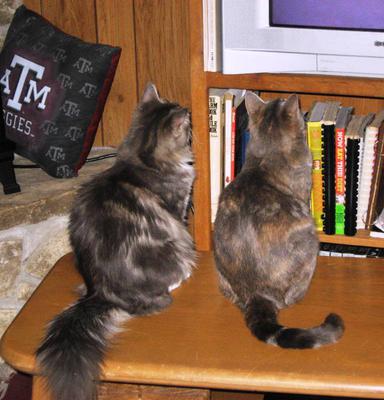
My guess is that he's going to have to experience some hunger to help you on your way. Perhaps, once he starts eating, you can move away slowly.
In essence, "wean" him from the attention he expects from you at feeding time. Around this time you may find him sneaking a bite when you are not coaxing him. Always keep a little fresh kibble around!
Here is something else you can try: dribble something irresistible on his kibble (when he's hungry), like a little gravy from you dinner, and walk a few steps back. See if he'll eat it without any fanfare.
In conclusion, while cats are generally independent creatures, the duration to leave a cat alone depends on various factors such as age, health, and individual temperament.
Adults can typically manage solo time for 24 hours on occasion with proper provisions like food, water, a clean litter box, and someone to check on them.
However, special considerations should be made for kittens, seniors, or cats with specific needs.
Planning ahead, arranging for periodic check-ins, and creating a safe environment are key to ensuring your cat's well-being during your absence.
With thoughtful preparation and attention to your feline friend's unique requirements, you can confidently leave a cat alone, knowing they'll be safe, comfortable, and content until your return.
Top of Leave a Cat Alone at Home
« Back to Maine Coon Cat Care

